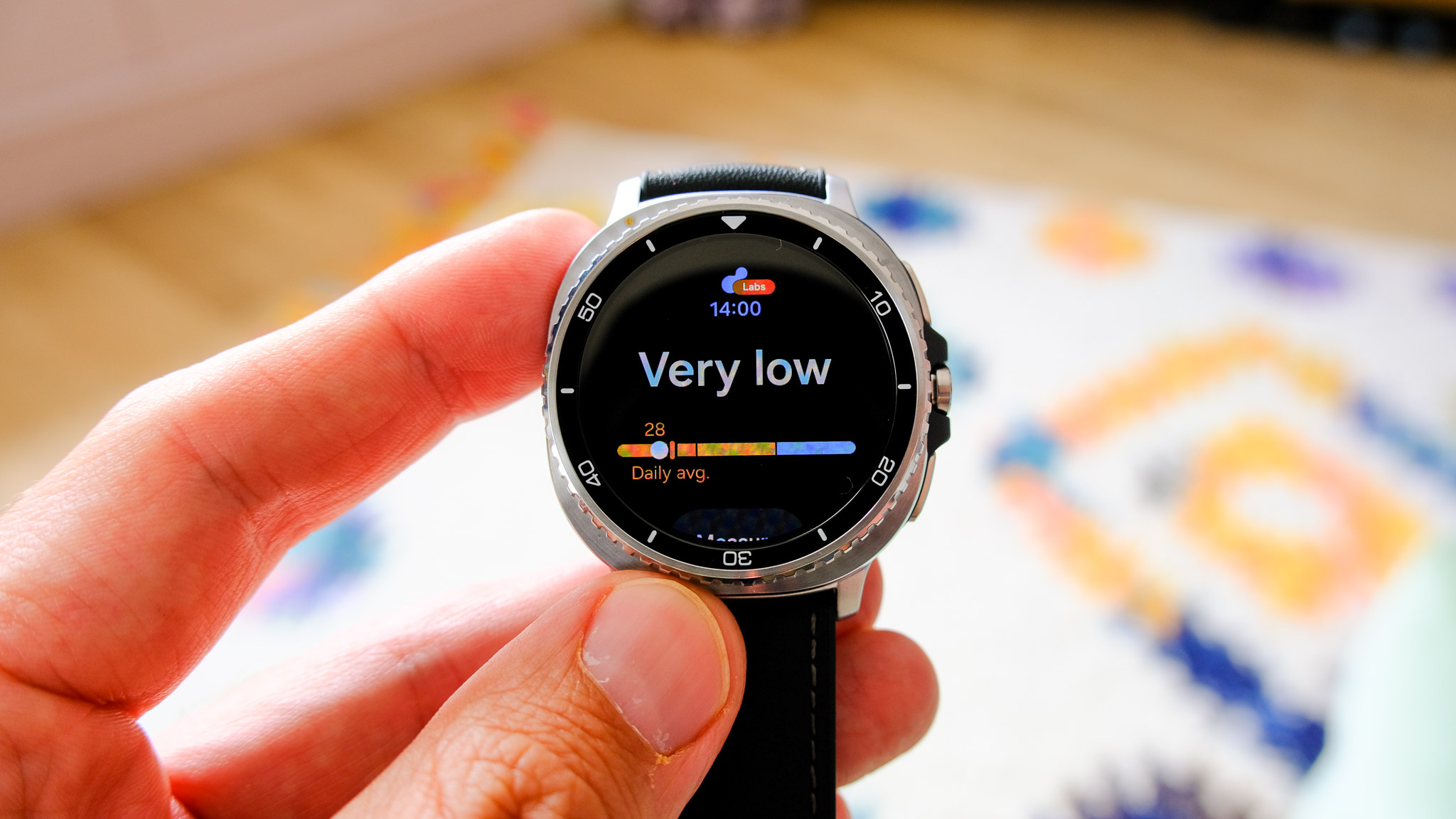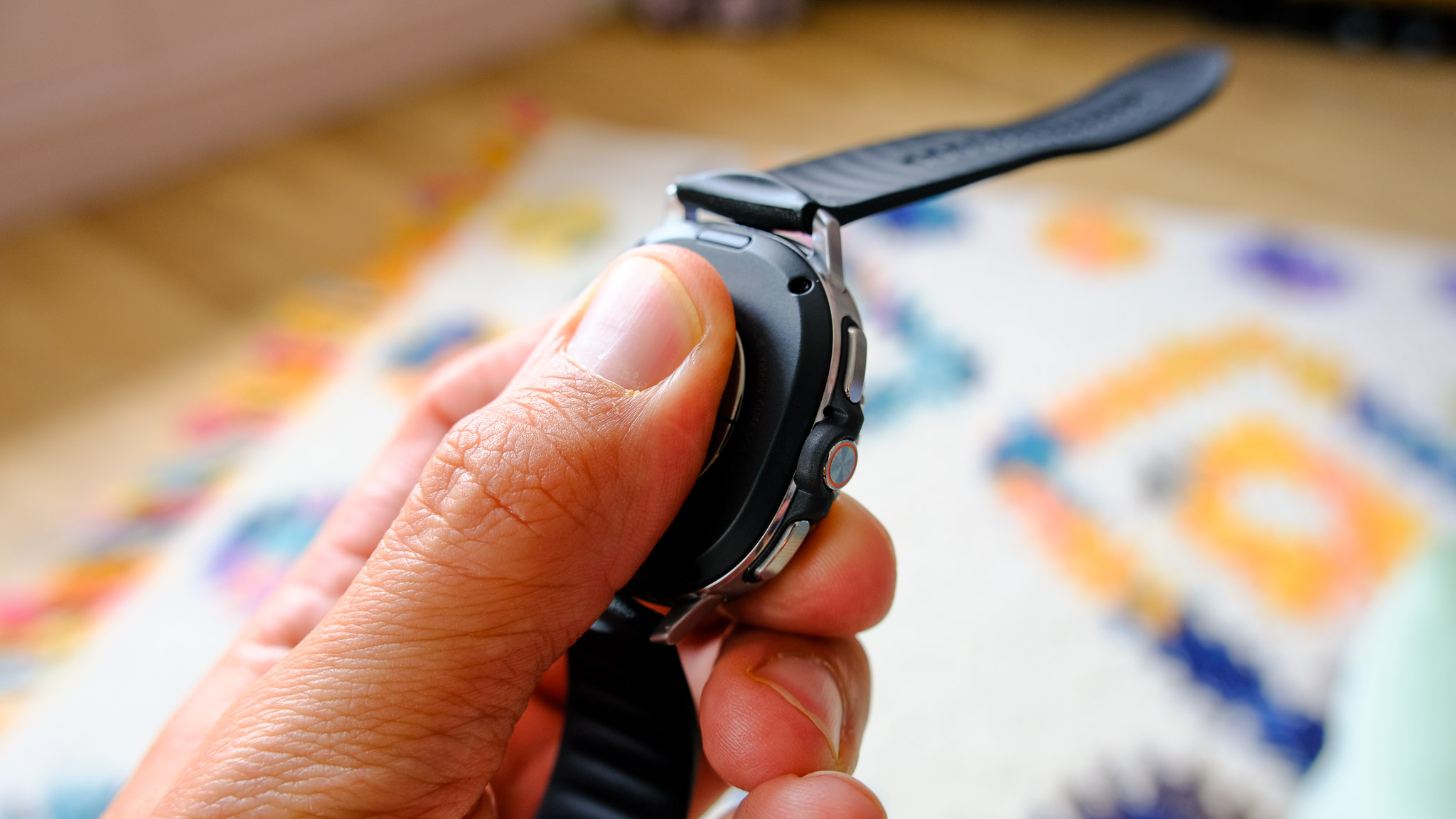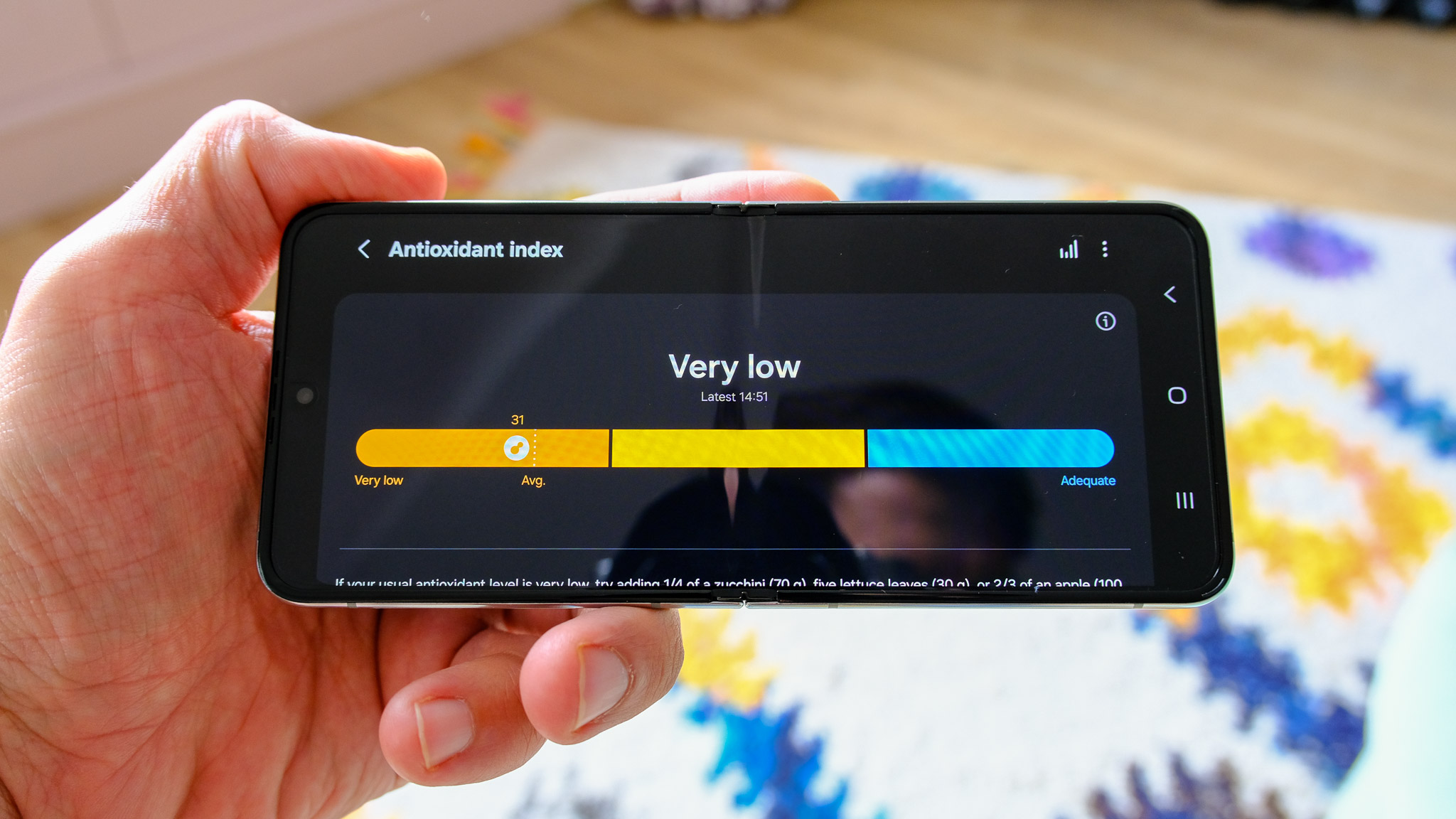One of the new Galaxy Watch 8 features makes me slightly concerned – let's hope it's only a calibration issue
I need to start eating more vegetables


Get all the latest news, reviews, deals and buying guides on gorgeous tech, home and active products from the T3 experts
You are now subscribed
Your newsletter sign-up was successful
I've been using the Galaxy Watch 8 Classic for 48 hours, and I'm falling in love with it more and more. I like the way it looks and feels, and I appreciate the suite of health and wellness features Samsung's latest smartwatch offers.
I tested the Running Coach feature, and I can tell it wasn't my best day because my watch thinks my current goal is to run 15k under 1 hour and 42 minutes (I can run a half marathon under that time).
The new feature I was curious to try out is Antioxidant Index, which is a peculiar one. Under normal circumstances, testing antioxidant levels typically involves a blood test done through a clinic or private health provider.
According to the internet, this can measure either the total antioxidant capacity (TAC) of the blood or specific antioxidants like vitamin C, vitamin E, or beta-carotene. Some tests also assess antioxidant enzyme activity or look for signs of oxidative stress through urine or saliva samples.
The Galaxy Watch 8 does none of these things. It's non-invasive, meaning there aren't any probes inserted under your skin. Instead, the watch measures antioxidant levels by optically reading skin carotenoids via LED light sensors.

This method requires pressing your thumb, which pushes aside blood capillaries, onto the sensor for a short manual measurement. It gives a general, trend-based insight into dietary habits, but it certainly isn’t a full clinical test.
Now, my diet is nothing to write home about, but one thing I always make sure that I have my five a day. I have a banana, some tomatoes, and an apple a day, as well as some nuts to snack on and various vegetables with my meals.
Get all the latest news, reviews, deals and buying guides on gorgeous tech, home and active products from the T3 experts
Despite my efforts to keep my antioxidant levels at a decent level, my first reading was "Very low", only 32 out (I assume) 100. To say I was surprised is an understatement. I didn't expect it to be 100, but 32 felt low.
My wife got interested in it, so she tried it on her thumb, and her score was the same. (I appreciate that's not how things work, but we wanted to see if the readings were drastically different if they were done on someone else.)
She suggested we test another body part, my big toe, to see if it makes a difference. Again, this isn't how you're supposed to use the feature, but we did it anyway. Nevertheless, the reading stayed the same (actually, it dropped to 31).

Determined to show the algorithm that I'm not as unhealthy as it thinks I am, I ate some vegetables and went to bed. I was eager to see if there were any changes in the score the morning after, so I did a reading after breakfast.
My Antioxidant Index went up to 41 – still "Very Low" but better than yesterday! Progress is what I like to call it. Of course, I wonder if it takes some time for the algorithm to settle, and whether my score will improve over time.
On the other hand, eating more vegetables, fruits, and nuts isn't a bad idea, even if my antioxidant levels are "Adequate." It's the same argument with climate change: it doesn't matter what causes the warming, switching to renewable energy sources doesn't hurt, either way.
I'm still keen on improving my Antioxidant Index through better diet choices or algorithm tweaks. It may not be a medical-grade feature, so I'm not overly concerned about the index being low. But it adds to the already impressive suite of gamified health features on the Galaxy Watch 8.
If the only thing Antioxidant Index is to make Samsung's latest smartwatch more engaging to use, I'm all for it.

Matt Kollat is a journalist and content creator for T3.com and T3 Magazine, where he works as Active Editor. His areas of expertise include wearables, drones, action cameras, fitness equipment, nutrition and outdoor gear. He joined T3 in 2019.
His work has also appeared on TechRadar and Fit&Well, and he has collaborated with creators such as Garage Gym Reviews. Matt has served as a judge for multiple industry awards, including the ESSNAwards. When he isn’t running, cycling or testing new kit, he’s usually roaming the countryside with a camera or experimenting with new audio and video gear.
You must confirm your public display name before commenting
Please logout and then login again, you will then be prompted to enter your display name.